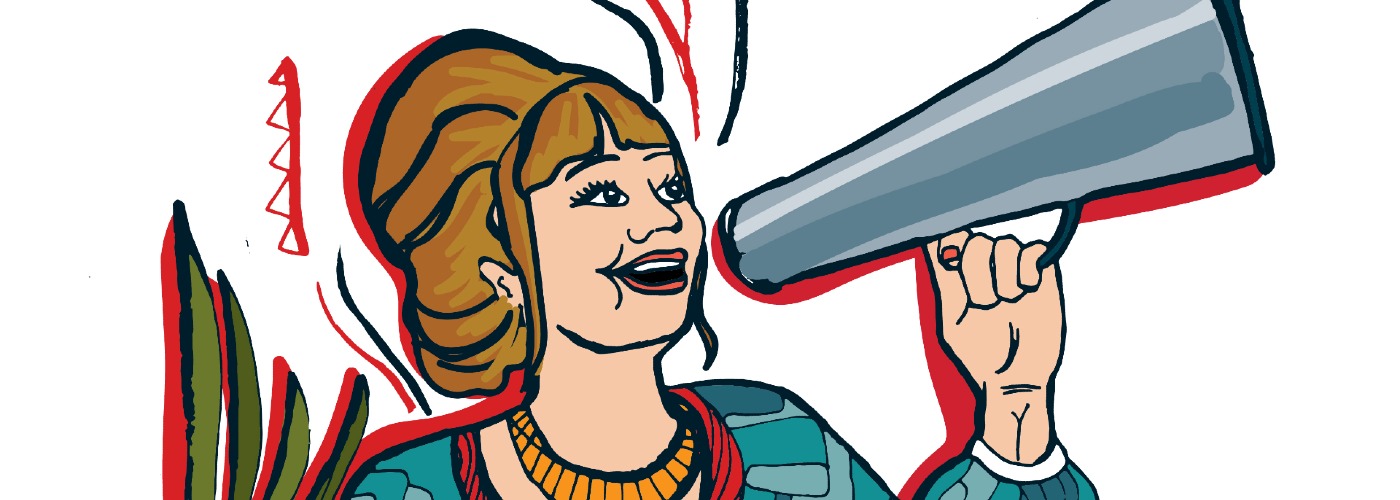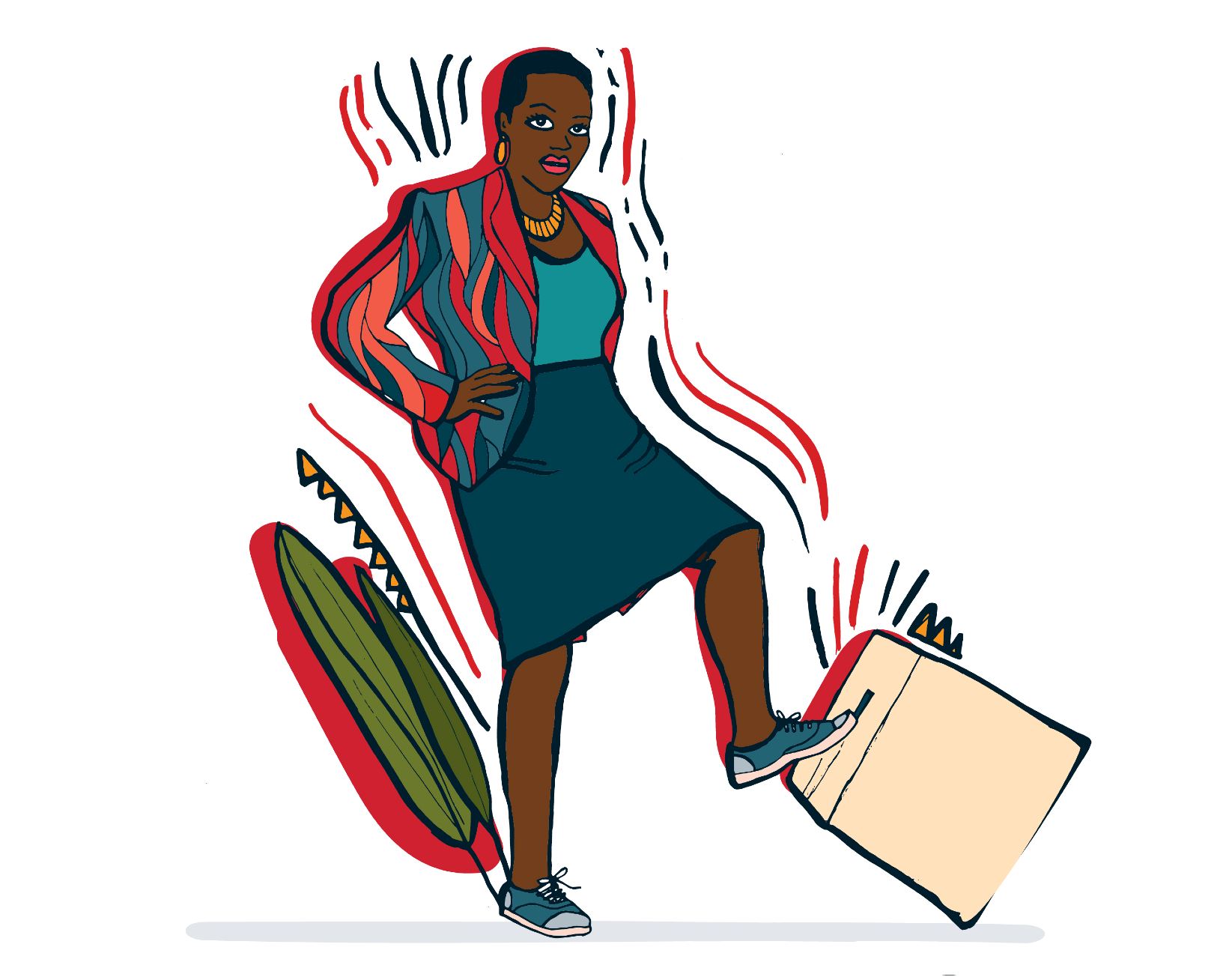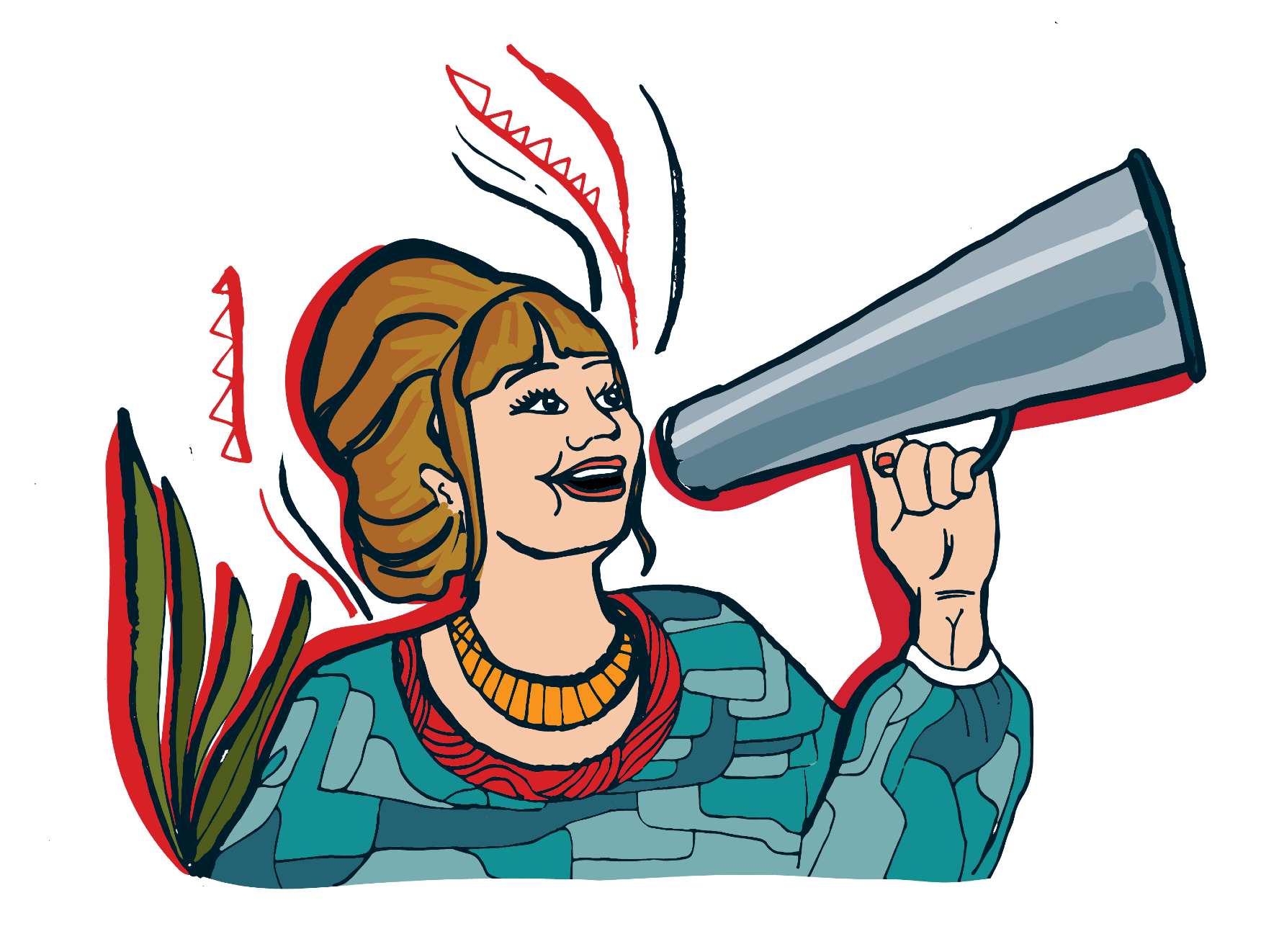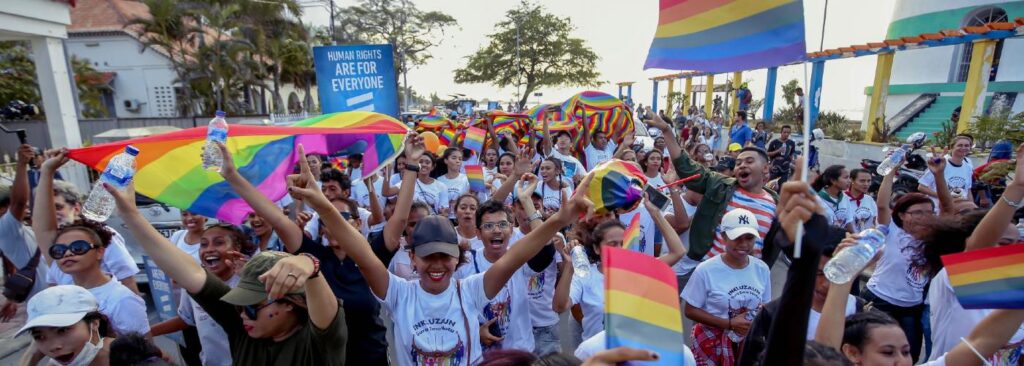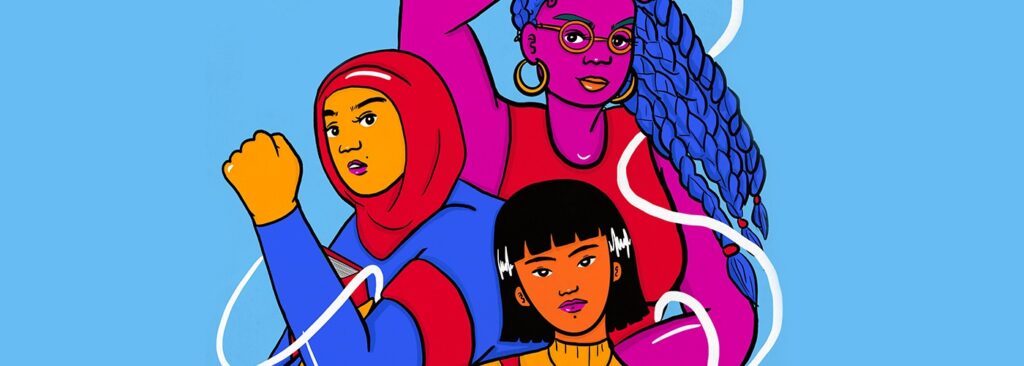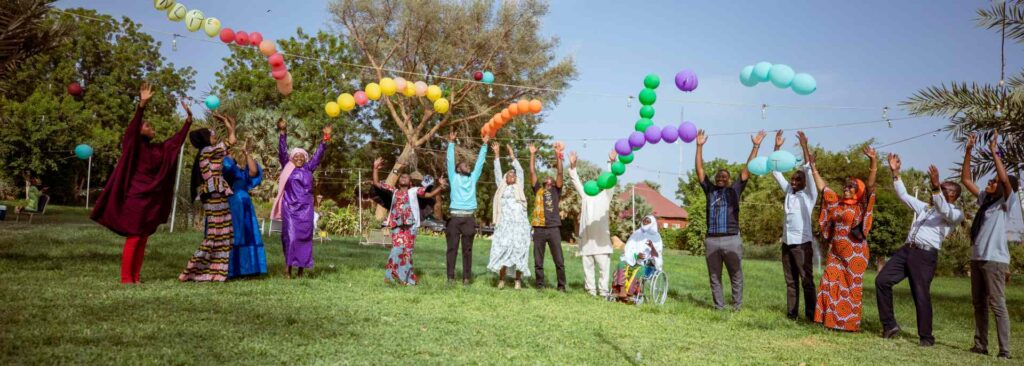“Decolonizing the development sector” started as a radical idea to rethink power structures in the social justice debate. It has now become an uncomfortable reality that many international NGOs and the philanthropy world have to grapple with.
The term “decolonizing”, which also evokes historical struggles for independence, calls for structural change in more than just how things are done in international development. It refers equally to disrupting, re-inventing and injecting an intersectional approach to development by including voices and perspectives of the Global South.
We need to embrace intersectionality and make room for rightsholder groups to lead.
Voice – an innovative grant facility supported by the Netherlands Ministry of Foreign Affairs and jointly executed by Hivos and Oxfam Novib – has reached its five-year mark after starting in 2016. Its new extension phase (2021-2024) comes at a time when development organizations are starting to take seriously systemic changes that are addressing power dynamics and calling for inclusivity in the sector.
Hivos East Africa’s Sally Akinyi (SA) sat down with Voice’s outgoing Global Program Manager, Marinke van Riet (MvR), and with Ruth Kimani (RK), Voice’s Roving Grant Officer Africa, to have an in-depth conversation about five years of Voice, walking the talk in local ownership, and some of the beautiful lessons learned along the way.
SA: Voice has been a champion of inclusivity since its inception. Walk me through your journey and personal beliefs around local ownership.
MvR: The real discussion we should be having in the development sector is about a diverse and locally-driven agenda. This is what Voice has been pushing for in the past five years based on the principle of “NOthing about us Without Us” or “NOW-Us!”. We have always strived to walk the talk when it comes to local ownership. We’ve already decentralized our global team, initially based in The Hague, to Niamey, Nairobi, Phnomh Penh, and Manilla. We’re increasing diversity in leadership positions and bringing services closer to where they’re needed.
I personally believe local ownership is not only about project design and implementation, but about diluting and taming power dynamics and being confronted by the same accountability mirror that we hold up to others.
SA: Could you elaborate more on the experience of Voice in local leadership and where you stand on the decolonizing aid debate?
MvR: The issue we are currently facing in the development sector is not entirely one of decolonizing aid, but of diversity, which I would like to call “feminizing” aid. In our experience at Voice, we have had to circumvent patriarchal structures within all the five rightsholder groups we work with. For example, in indigenous and disability movements a lot of toxic masculinity plays out at the expense of women’s leadership. These are some of the lived realities we have to be forthright about in selecting grants and having honest conversations with people.
Breaking through these barriers to pursue local ownership through capacity strengthening and Linking and Learning activities has been one of our great successes.
At the structural level, I draw upon the rich experiences of US-based foundations that are living examples of their diversity, equity and inclusion values. This is where we see foundations being led by black women presidents and deputized by white men vice presidents. At Voice, we are spearheading difficult conversations around holistic inclusivity and diversity in our grant-making so we can literally “embody” local ownership.
Voice’s approach to grant-making has very deliberately included rightsholders throughout.
RK: Voice also champions local ownership by ensuring that informal and emerging grassroots organizations have an active say in how the funding they receive is used. And we strengthen their capacity in such a way that their governance structures are representative of rightsholders and minorities.
SA: You have pushed the boundaries around diversity and inclusion in your work. What “beautiful trouble” have you created?
MvR: Our journey has been immensely beautiful. From debunking myths around women with albinism to dismantling harmful narratives around sex workers, our experience spans from Asia to Africa, where we encourage local organizations to be #proudandloud in campaigning. For instance in Mali, we supported AMPA, a local albino-led organization, with their Ms. and Mr. Albino contest. At first it was just going to be Ms. Albino, but that would have stereotyped female beauty. In Tanzania, we wanted to influence the World Press Photo competition to be more attuned to locally-lived realities. So we and our partners organized a parallel photo contest for young local photographers that included photos about – women’s menstrual journey.
SA: Have your grant-making approaches been innovative in giving more power and authority to locally-led organizations?
RK: Voice’s approach to grant-making has very deliberately included rightsholders throughout, from context analyses that provide critical information on trends and developments, to Calls for Proposals that are designed to include their voices.
Flexibility is also ingrained in our eligibility criteria, which attract minority groups because they let them submit proposals in non-traditional formats like audio-visual materials.
And we make a real effort to remove unconscious bias in the review process by looking at ideas first, and not rejecting a partner purely based on their capacity.
MvR: Our premium win in local ownership has been Voice’s partnership with the Transparency and Accountability Initiative in launching a Call for Ideas titled “From Open to Inclusive Governance.” This linked up the transparency and accountability movement (at times considered elitist) with grassroots movements, like Nothing about us without us.
SA: What footprint do you want to leave behind? What would you like to be known for in the development sector?
MvR: The dream or footprint came from former Minister of Foreign Trade and Development Cooperation, Lilianne Ploumen, who said that Voice will not change the entire world but will be world-changing for some. To live this dream – which has become a reality for some – we want grant-making to be fun, accessible and life-changing for all.
SA: Marinke, you announced you were stepping down from your position not so long ago. You said you wanted to make room for rightsholder groups. What led you to this decision?
MvR: I believe in authentic leadership. My various identities do synchronize with some of our rightsholder groups, but we obviously don’t have the same lived realities. We need to embrace intersectionality and make room for rightsholder groups to lead.
Voice’s “Nothing about us without us” axiom is a humbling statement that has been my guide for the past five years as a leader. And it’s what’s behind my conviction that we need to ‘’move to the South.”
SA: What message do you have for northern-led development organizations regarding your departure from Voice?
MvR: The whole sector is struggling with legitimacy and credibility. We must hold a mirror up to ourselves and ask difficult questions, like, “Who are we accountable to?” This should be rightsholders, and not only donors. And in terms of diversity, I can’t help but notice that in the Netherlands, the three largest INGOs are led by white middle-aged men.
SA: What is Voice’s biggest overall win since its inception?
MvR: You know, there were many skeptics at the beginning who didn’t think we would take off. And look at us now! Not only is Voice celebrating a very successful five-year run, but also its extension for another three years of championing social justice for the most underrepresented groups.

